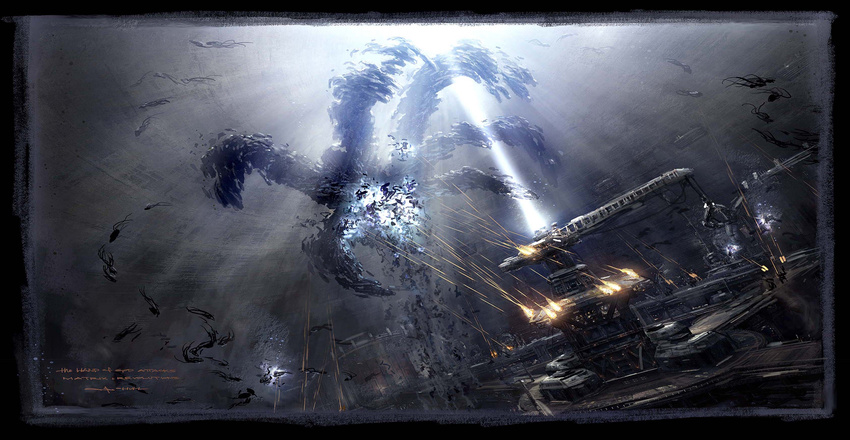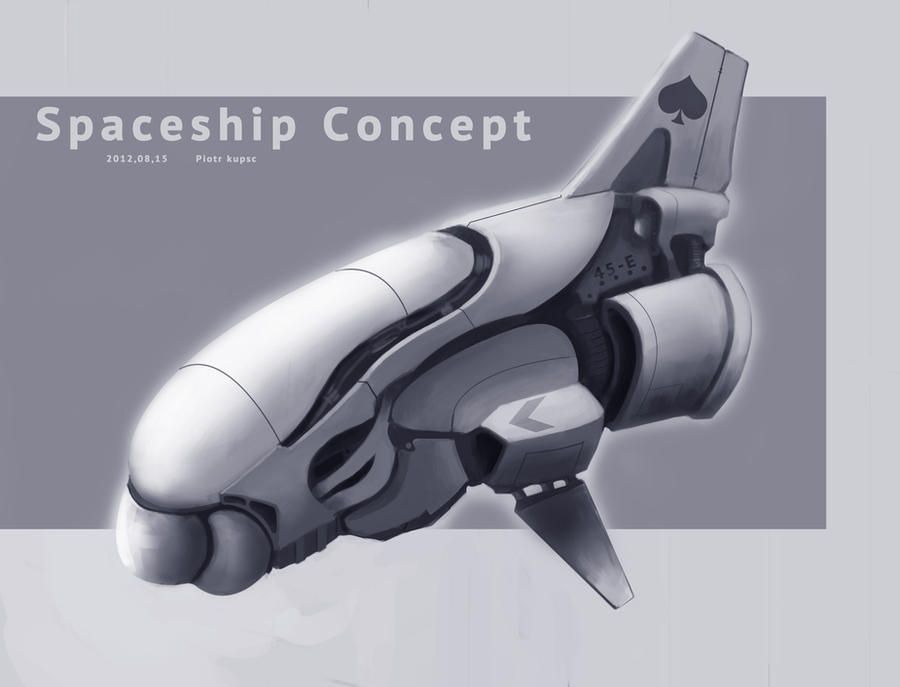Concept art! probably the most aspired too and most competitive position in the commercial media industry for any new and budding artist like myself and gristly veterans alike.
"Why" I hear you say? well like my friend Mike said his friend Mitch said his buddy said,
But seriously I think its partly because good concept artists are highly sought after, but the positions available are sparse. Due to their role in the production pipeline and their base skills, you don't really need more than a few in a big company. And everyone is chasing the big bucks salary of course. :P
One thing all artists like is freedom to explore their own idea's or visual style. I think that's sort of what concept artists get to play with, they get presented the brief and have the responsibility but also freedom make it their own and create something visual that other people like the 3d modelers then have to base their work on.
There are some very important guiding principles that any artist aspiring to the job position of concept artist needs to live by; they are as follows:
First and foremost it almost goes without saying that you've gotta have a firm grasp of the fundamentals that underpin any artwork. Such as, Anatomy, perspective, colour, tone, lighting. That is what I'm constantly working towards mastering.
Without those you really cant stand a hope in hell of producing any kind of artwork someone today would pay you a salary to do.
Planning - Now I'm not great at planning and that's something I'm working on changing. I'm too used to skipping ahead and following my initial idea till Ive either completed it or given up mid way cause it wasn't before good. Where as if I planned my idea and intelligently managed my time developing it before committing all my resources to it, then I'd likely end up with a better result.
I need to experiment more and stop thinking I can nail it on the head with my first shot. So planning is essential to concept art and not just that. It helps you to keep to a schedule, know your time realistically so you can maintain a healthy work ethic, whilst not neglecting other aspects of your like. e.g. healthy lifestyle.
Design - Basically, if its lame you no get moneys or job. So be smart about it, creative and concise with what your aiming to get across. Their job is is to translate an idea into something that is unique, that is visually pleasing and makes sense to the next guy to the line. Sooo now I need a good example and a bad example of Design.
These in my opinion are good examples of conceptual design,
 |
| All above artwork by John Liberto / Concept artist |
Technical ability and skill - Now you cant achieve the above without this. It is something that is earned from thousands of hours of hard grafting and constant pushing forward of idea's and techniques. Its not something you are born with... Although to some extent I would say it can be. because there are some people who naturally find their in tune with this kind of creative process and more often then not, those people end up focusing on art over traditional academics because its identified early on. With hard work anyone can become technically good though, and gain the skills needed to create this kind of imagery.
 |
| George Hull / Concept Artist |
However, being creatively brilliant is another matter. That usually is something you either click with or you don't. Some people were born to imagine amazingly quirky creative things and others just arn't...
I like to hope I am not one of the latter, I just need to graft and get the fundamentals nailed before i can unlock that hidden potential. :D
Functionality - Your design has to look like it could work/exist ! No point designing a space ship that's totally smooth and has no visible windows or obvious entry location. Unless its a UAV or has some kind of future tech that teleports the pilot into the craft, in which case that needs to be explained visually some how. Best avoid needing to talk too much and just let the pictures speak for themselves.
I don't want to be harsh to the artist, but here is an example of a slightly confusing concept. In which its functionality is stylized so much its almost not based in reality.
 |
| DA / ST-Pete |
Adaptability- This is hugely key and is a major factor in a company when deciding to hire a new concept artist. Basically you have to be able to adapt to different styles and subject media equally as efficiently as your other maybe more favored work. So if your needed to do some designs for a game based on the great barrier reef, and you are also great at doing vehicle designs etc.. your more likely to get the job than Mr "one trick pony", even if he/her is technically better at their preferred subject.
It also means being able to work in both 2D and 3D mediums. This is something I am training to better myself at, because I'm aware I have favored subjects I draw, but the more versatile I can be, the better ill be. John Liberto is a good example of an adaptable concept artist. Jaime Jones is another. There is a reason they have both worked with the big fish on the games industry scene.
 |
| Jaime Jones / Concept Artist |
Vision library - This is something i need to work on, because apart from a vast desktop wallpaper folder, I have very little images of my own gathered through collection. I want to aim to have gigs and gigs of imagery to reference from by the time I get my first job as a professional artist. The wider the themes encompassed in it the better!





No comments:
Post a Comment